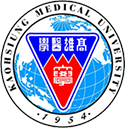Introduction
Kaohsiung Medical University (originally known as Kaohsiung Medical College) was formally established in September, 1954. In the same year, the School of Medicine was formed at October. The Department of Pharmacology was officially established in August, 1956, headed by Prof. Tsu-Chih Tu. Meanwhile, Prof. Tsung-Ming Tu held a concurrent post as the full-time professor. The next chief head of the department is Prof. Chen Chang followed by Associate Prof. Zuey-Shin Hsu, Prof. Tsung-Ming Tu, Prof. Wen-Hsiung Li, and Prof. Ing-Jun, Chen (1979--2006).
Till now, our department has formed over 50 years. Additionally, it is worthy to mention that our Graduate Institute of Pharmacology was established in August, 2004. The first director is Prof. Ing-Jun Chen (2004-2006), followed by Prof. Bin-Nan Wu (2006-2007). At August 1st, 2007, Graduate Institute of Pharmacology integrated into the School of Medicine and renamed Master’s Program in Department of Pharmacology, School of Medicine, headed by Prof. Bin-Nan Wu (2006~2012), followed by Prof. Jwu-Lai Yeh (2012~2015). At August 1st,2015, Master’s Program in Department of Pharmacology, School of Medicine integrated into Graduate Institute of Medicine and renamed Division of Pharmacology and Clinical Pharmacology, headed by Prof.Bin-Nan Wu(2015~till). We are one of the most respected pharmacological departments in Taiwan, enjoying a powerful multidisciplinary research infrastructure and outstanding industry partnerships. We are a dynamic, coordinated and forward-looking department with an internationally competitive research profile. We have 7 full-time faculty members; all are Professors except 1 Assistant Professor. So far, our colleagues work pretty well and our research is getting better and better. We also actively collaborate with physicians from our campus and other researchers from the different universities or research organizations.
Features
With the development of biomedicine and biotechnology, research on pharmacology is not only limited to traditional pharmacology, it has been towards pluralism. For training of professional skills of master students, the courses involve both traditional and modern pharmacology including basic and clinical knowledge, in accordance to the drug development, the biotechnology- directed manufacturer and cultivated professional pharmacologists which meet the country and community requirements.
In curriculum planning, to ensure that graduated students are able to possess core competency of pharmacological professionalism. Educational courses are designed to include core knowledge in pharmacology, professional skills, and attitudes. In the research area, we focus on the integrated projects of basic and clinical pharmacology in the model of disease and therapy. Lastly, our goal is to create new research opportunities, strengthen the cooperation of industry-university, and enhance the students’ competitiveness of employee after graduation.
Research Focus
The research interests of our Department are diversely, and currently we include the following. Further details may be found under the research entries of individual faculty members.
- Development of metabolic and neurodegenerative diseases drugs
- Study of anti-inflammatory and anti-oxidative drugs
- Development of new anticancer drugs
- Pharmacology of traditional Chinese medicine and natural products
- Clinical pharmacology and environmental toxicology
- Cardiovascular pharmacology
- Development of anti-
- Ocular pharmacology
- Vascular smooth muscle electrophysiology
- Pharmacology of neural behavior
- Cellular and molecular pharmacology
- Research on drug epidemiology
